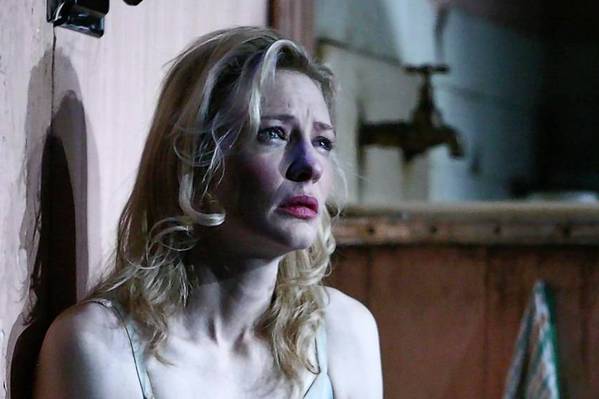
Allen’s latest film Magic in the Moonlight has not received the credit it deserves. At first glance it is a starkly different film than Blue Jasmine. It seems this way because it channels some of the brainy levity of the films from the 80s, and even 70s classics like Love and Death or Annie Hall. Such a stereotyping of the earlier films ignores the existentially dead-serious serious thought-experiments and questions posed by those films through, not in spite of, their use of the comedy genre.
Furthermore, Magic in the Moonlight conducts a thought experiment about an aspect of human possibility that Blue Jasmine ex definitio could not. This human possibility is conversion; it starts off where the earlier film left off.
It does so through telling the story of Stanley (Colin Firth), a world-renowned magician, who is maneuvered into debunking a clairvoyant. He is the man for the job, because he knows all the best dirty tricks as a matter of profession. His drive toward disenchantment is reflected in his personality: He is the ultimate pessimist who peppers his speeches with sarcastic (but hilarious) variations on Nietzsche, Schopenhauer, Darwin, and Hobbes. He is every bit as unlikable as Jasmine; however, the secret door of conversion stands slightly ajar for him. He inhabits an eucatastrophic universe, not a tragic one.
Stanley’s encounters with the clairvoyant Sophie (Emma Stone) leave him stumped. He is unable to debunk her no matter how hard he tries. He ultimately, if briefly, leaps into a belief in God with a vaguely spiritual lining to the world. The twist that follows his conversion cannot be fully described without spoiling the film.
Suffice it to say, the film does an outstanding job of showing how a conversion ought to change one’s world. It does so almost as well as Kevin Hart’s title essay from the collection The Experience of God: A Postmodern Response (Hart’s thought-experiment involves a remote control and a friendly stranger …). Both Allen and Hart suggest that not much changes immediately in the objective world around the convert, yet our way of relating to the world gives us new eyes to notice phenomena that were there but we did not see or hear. This in turn has the potential to change the objective world as well—move mountains, if you will.
The conclusion of Allen’s film subtly undercuts Stanley’s conversion, but not in a straightforwardly devastating way. It leaves open the possibility that the faulty conversion is a happy fault (eucatastrophic).
Woody Allen’s seriousness in entertaining the problem of conversion as a topic for a movie not only puts him high up in the living film director list, but also fairly high up on the list of atheist intellectuals who engage religion charitably. Or in his own words from Stardust Memories:
“To you, I’m an atheist. To God, I’m the loyal opposition.”
==========
This is the second half of my post on Allen’s most recent films. You can read the full analysis of his recent work here on Ethika Politika.
I leave you with an autobiographical excerpt from Hannah and Her Sisters that gets at the ideological divisions in American Catholicism:
And one of the most powerful soliloquies in all of cinema from the same film:












